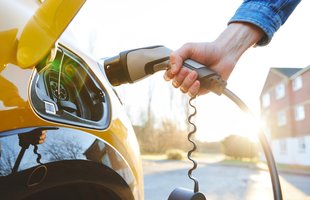The pair’s full-scale trial will integrate electric vehicles into test homes on the Salford University campus that run solar panels, home batteries and smart heating systems to demonstrate how consumers can draw on the home energy boom to bring down bills.
The plans flip the traditional energy dynamic, which assumes that electric vehicles (EVs) will receive power from homes by developing a ‘vehicle-to-home’ system.
Juliet Davenport, the chief executive of Good Energy, said the project meant it would be able to “truly see the impact for people’s homes, and their lives”.
“EVs, battery storage, ‘vehicle-to-grid’ and now vehicle-to-home are all technologies that will be part of a decentralised energy system of the future,” she added.
Good Energy, which supplies around 200,000 customers, also took its first steps into battery power systems late last year with another trial project at the Eden Project in Cornwall.
The smart home boom has opened a major opportunity for new, nimble players to gain a foothold in the increasingly competitive energy market. But it also poses a challenge to existing energy minnows to keep up with the technological leaps taken by larger rivals.
British Gas has led the Big Six charge into home energy gadgets while EDF Energy has also teamed up with Lightsource with its Sunplug offering, which combines batteries and solar panels via a smart meter.






